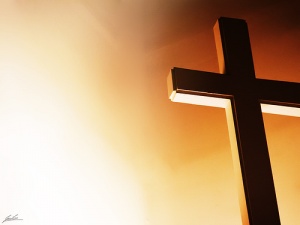Hate Crimes and Churches – A Historical Connection, Anew
December 17th, 2015
It is an unfortunate part of American history that has inexorably linked religious institutions with actions caused by bigoted hatred. What history teaches us is that whenever someone with hate in their heart wants to send a message, they typically do so with a violent act such as what recently happened in South Carolina. Congregations in five other states have seen their beloved institutions damaged by fire, with the true cause of the blazes still unknown. What many are asking as the investigations continue is whether these fires were accidental, or was a more malicious force at work trying to send a message of hate to parishioners?
What is a hate crime?
Hate crimes are defined by the federal Civil Rights Act as: offenses involving actual or perceived race, color, religion, or national origin. The statute continues by stating that “whoever…willfully causes bodily injury to any person or, through the use of fire, a firearm, a dangerous weapon, or an explosive or incendiary device, attempts to cause bodily injury to any person, because of actual or perceived race, color, religion, or national origin of any person.” This definition has also been expanded to include sexual orientation and disability.
Religion
While much of the focus of modern day hate crimes has been on race and sexual orientation, many do not realize that there is also a long history of hatred against religious institutions and what they stand for in American culture. The Church Arson Prevention Act of 1996 was enacted in an attempt to curb violence against religious institutions by providing an enforcement tool that could be used to punish those who wish to spread hate based on differing religious ideals. Our country was founded on the idea that those who faced religious persecution in their homelands could come to the United States of America and start a new life, free from such hatred and bigotry. Religious freedom is a cornerstone of what it means to be an American, and laws protecting this important freedom are key to its survival.
News stories of churches burning across the country should sadden even the least religious of us. We, as American citizens, need to stand up for the ideals set forth by our founding fathers in the Constitution. They envisioned a land that offered its citizens a peaceful environment in which to live, practice whatever faith they wish (or no faith at all), and be free from misguided acts of the bigoted minority. There is a reason that these individuals act under cover of darkness and anonymity and it is because they know what they are doing shames them and their families. Examples in the news of people abusing religion by condoning violent acts in its name may be equally liable. While the statutes referenced above may not have been traditionally used to prevent violence against religion itself, their sweeping language allows law enforcement to use them as a powerful tool in cases where hate motivates a person to do violent acts.
ULC Case Law
As religion comes under fire and cases move through our court system, Universal Life Church Case Law will be here to help explain the law as it stands, as well as any changes that are made in the way these laws are interpreted. Knowledge is a powerful tool against bigotry, and we are here to help those who seek to understand the nature of the freedoms guaranteed by our ‘living document’ that is the U.S. Constitution.
Photo Credit: EL@Seattle via Compfight cc


